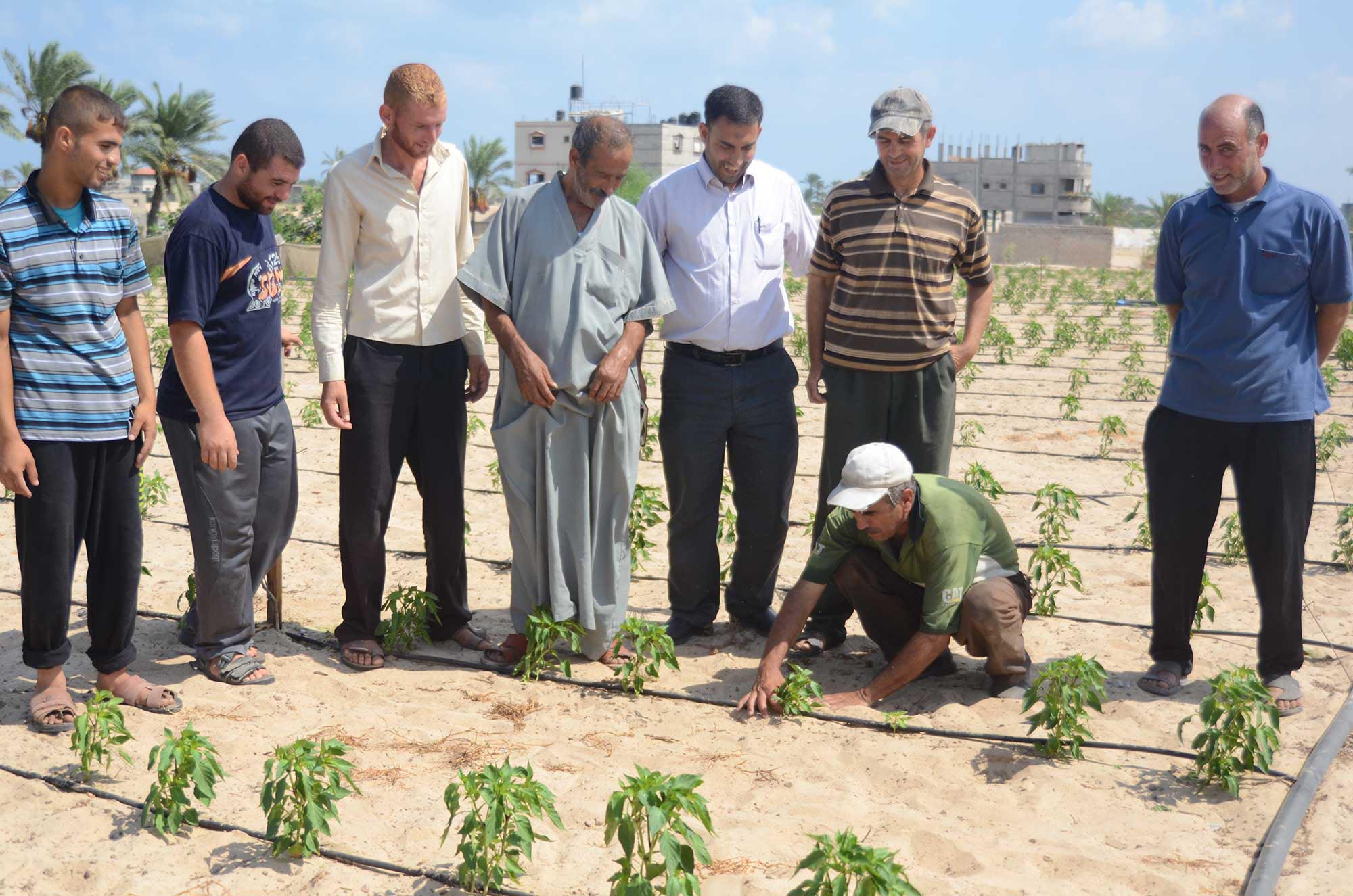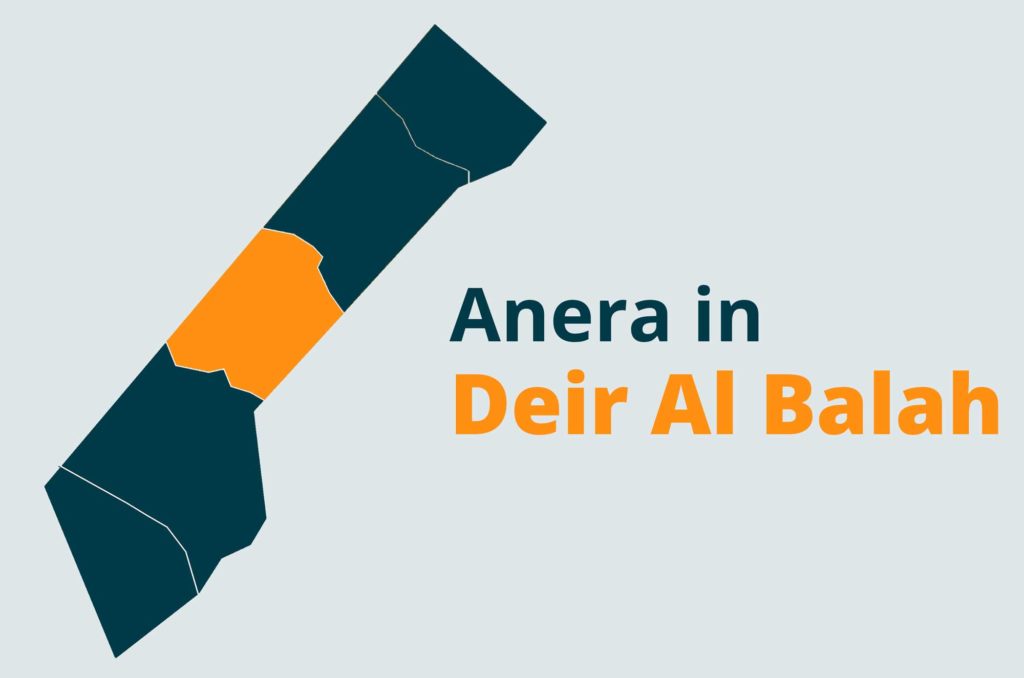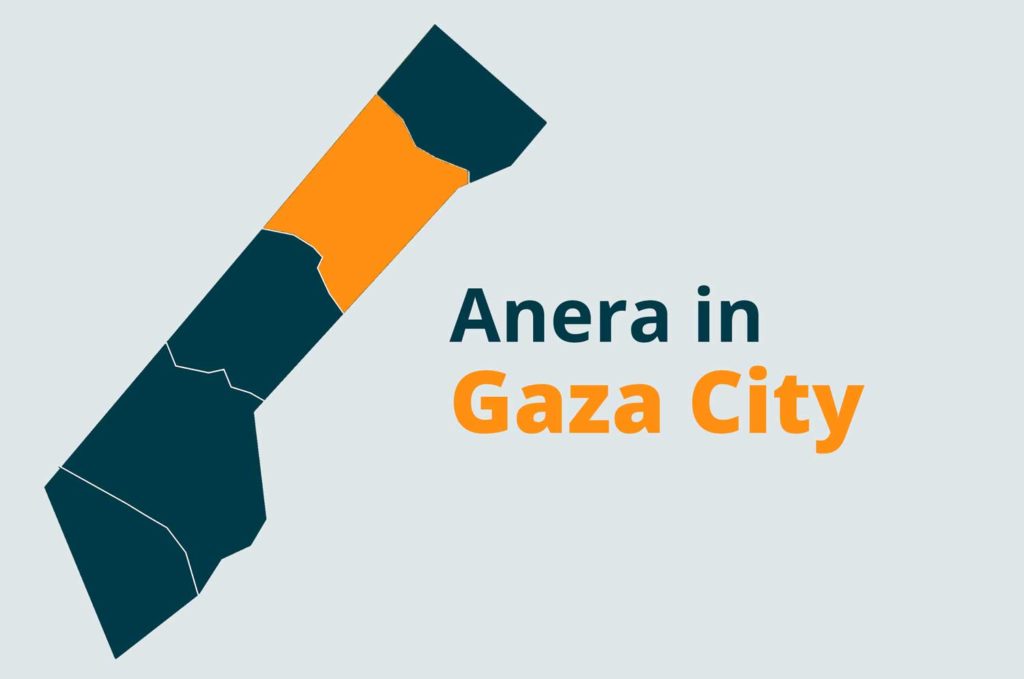Sep, 2015
For more than eight years, Gaza has been sealed off from the rest of the world. Most of the 1.7 million who live there barely eke out a living and have to depend on food aid to survive.
But the resilience of the mostly rural population is currently being boosted by efforts to revitalize abandoned Gaza farmland and regain food security.
“The striking scene of abandoned lands that lay fallow for years because of poverty, the blockade or destruction from the recent wars is starting to disappear in this Khan Younis community,” explains Iyad El-Saqa, head of Al-Quds Society for Developing El Mawasi, working in partnership with Anera. “It is definitely being transformed from a symbol of despair into a heaven full of life,” he says with a smile.
In March 2015, Anera implemented the Gaza land restoration project to help 150 farmers restore their farmland that had been damaged during the 2014 war or that lay fallow because of their lack of resources to plant it.
Mother & Daughter Cultivate Land
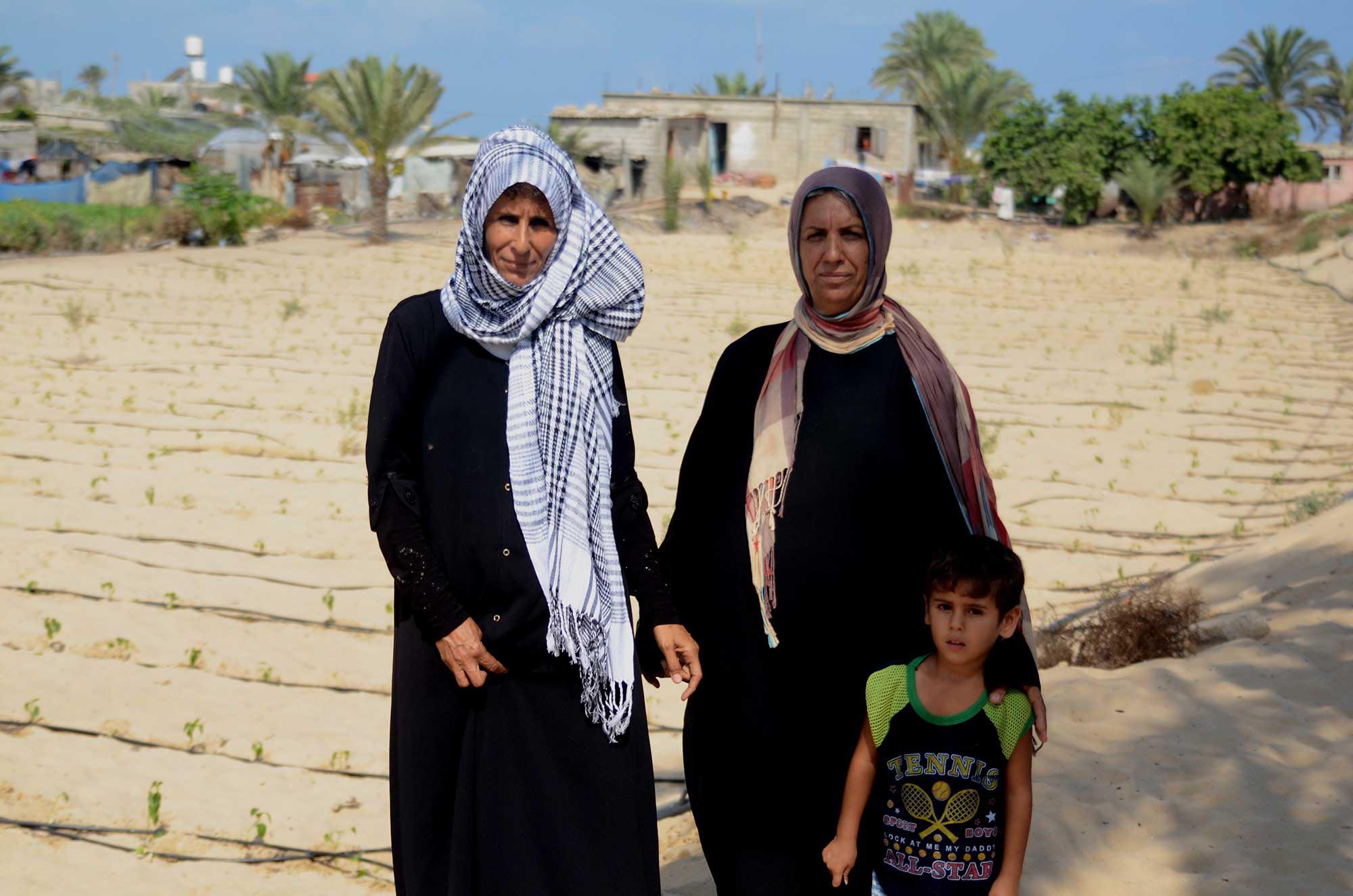

Those fields that once lay bare and parched now sprout olive tree saplings and rows of vegetables. Farmer Fatima El Laham leans over to gently remove weeds from between her new plantings. Irrigation pipes stretch in neat rows in the sandy soil, slowly dripping water to nourish the plants. “Look, there are green peppers on the way,” she says as she points to the sprouting vegetables.
Fatima and her daughter, Najat, have decided to plant green peppers because they believe it is the perfect time of year for such a crop. “When people start harvesting olives in October, we’ll have the peppers ready for pickling. It’s our tradition, you know, to preserve the olives, peppers and lemon.”
Fatima says she and her family can’t believe their eyes as the plants grow after so many years of staring at uncultivated land. Her small field is only a minute’s walk from her makeshift home but her husband had to quit farming five years ago after he developed acute sight problems, which prevented him from working the land. “We couldn’t afford either purchasing the seedlings or hiring people to help us,” Fatima says.
The scorching sun and power cuts are the main challenges now, but Fatima says her family is committed to irrigating the land twice a day until they see tangible results. “I hope our hard work and dedication pays off. I know the land will never fail those who care for it,” says Najat.


I hope our hard work and dedication pays off. I know the land will never fail those who care for it.
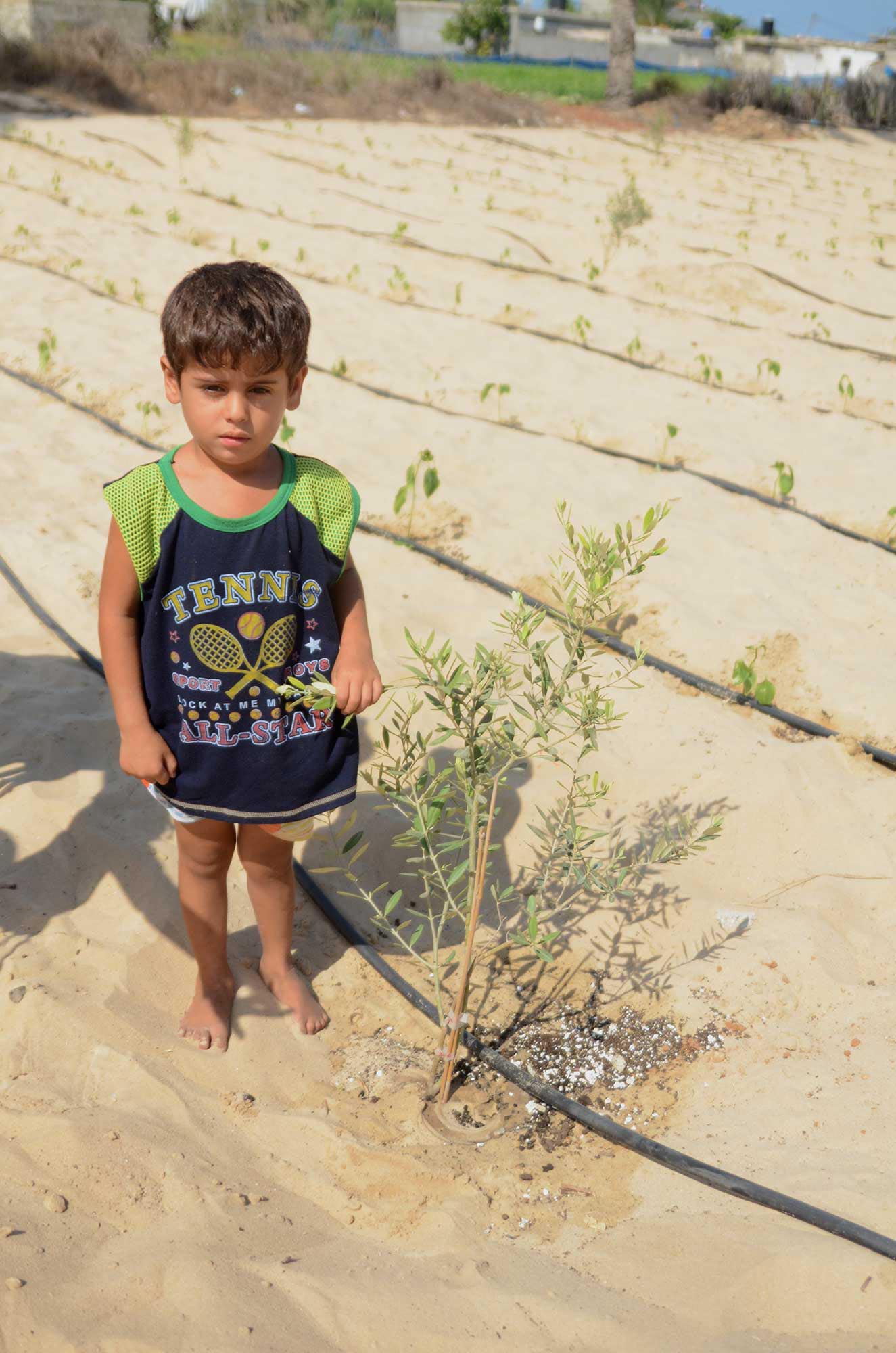

Gaza Farmland is as Precious as a Gem
Another farmer in the project, Mohamad Zoqmat — or Abu Riyad, as he is better known — calls his land “the gem of his life” because it is so vital to his well-being. He smiles, “My wife, Fadia helps care for the land so, to stay on the safe side, she is also the family bookkeeper,” he says. “She is the one who monitors expenses and makes sure we spend our savings wisely.”
Abu Riyad remembers last year was hard because he had no income from his land, which is the sole source of revenue for the family. The location of his Gaza farmland in Khan Younis made it dangerous to reach during the 2014 conflict.
“The shooting was intense here last summer and I couldn’t get to my land to water the plants for 51 days so I lost all my crops.”
Abu Riyad’s enthusiasm and excitement to recover his farm comes from his deep connection to the land. He is already contemplating all his crops. “The smartest thing to do is to plant green peppers and eggplants,” he muses.
As Abu Riyad tends his plants a group of farmers huddles around him to ask questions. He says it’s all part of the knowledge-sharing between farmers.
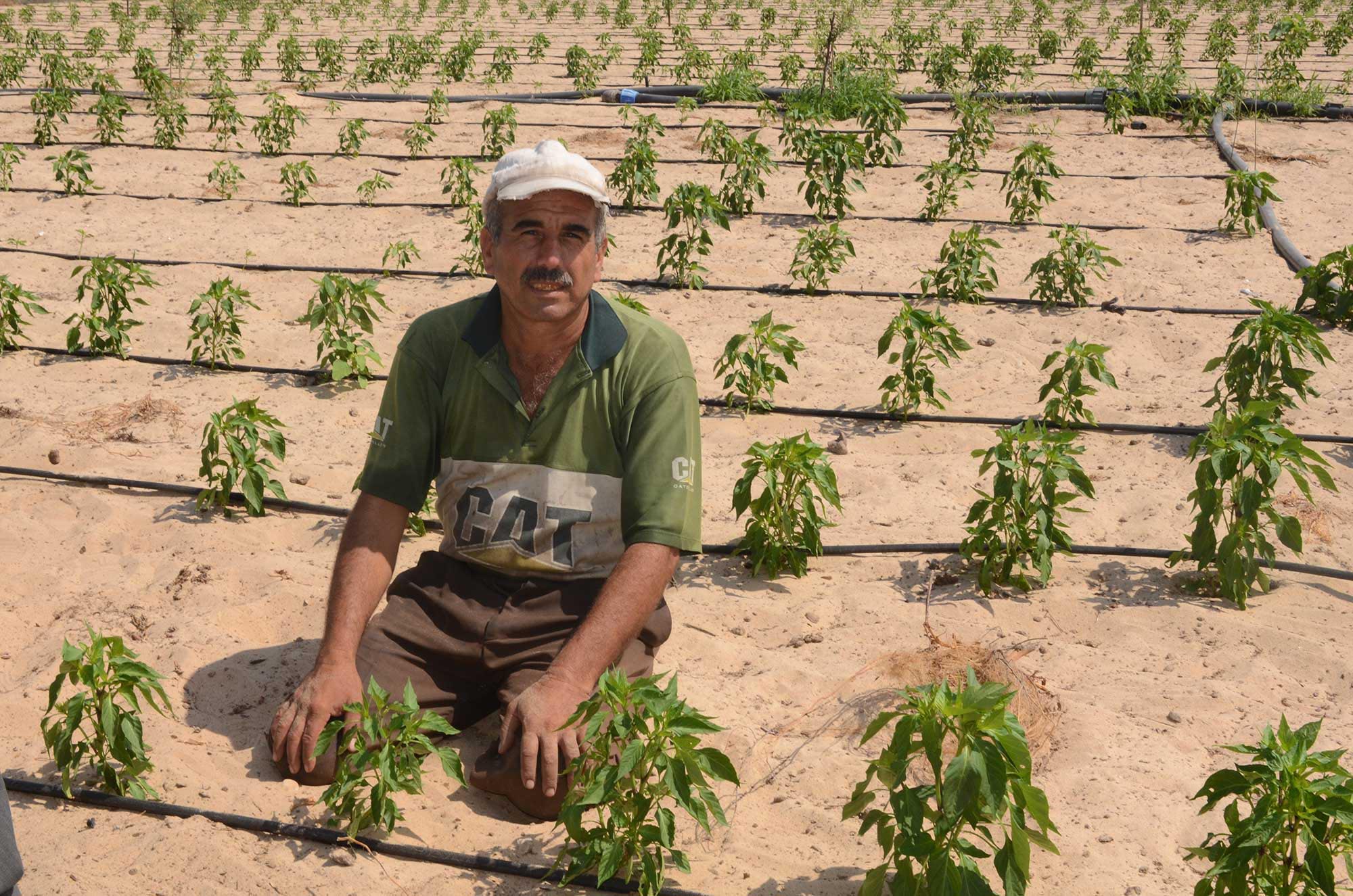



The shooting was intense here last summer and I couldn’t get to my land to water the plants for 51 days so I lost all my crops.
“Farmers learning from each other’s experience is empowering because they are learning from equals who share similar backgrounds and struggles,” explains Anera agronomist Abdallah Abudraz. The land restoration project includes farmer-to-farmer training, which encourages farmers to teach each other effective and appropriate techniques that can improve harvests and offer models of success. The approach also expands skills within the farming community and builds a sense of pride among the families.
Anera’s project also includes preparing the land for planting, providing compost, installing drip irrigation networks, planting olive saplings and vegetables as well as knowledge-sharing exchanges and training farmers on best agricultural practices.
